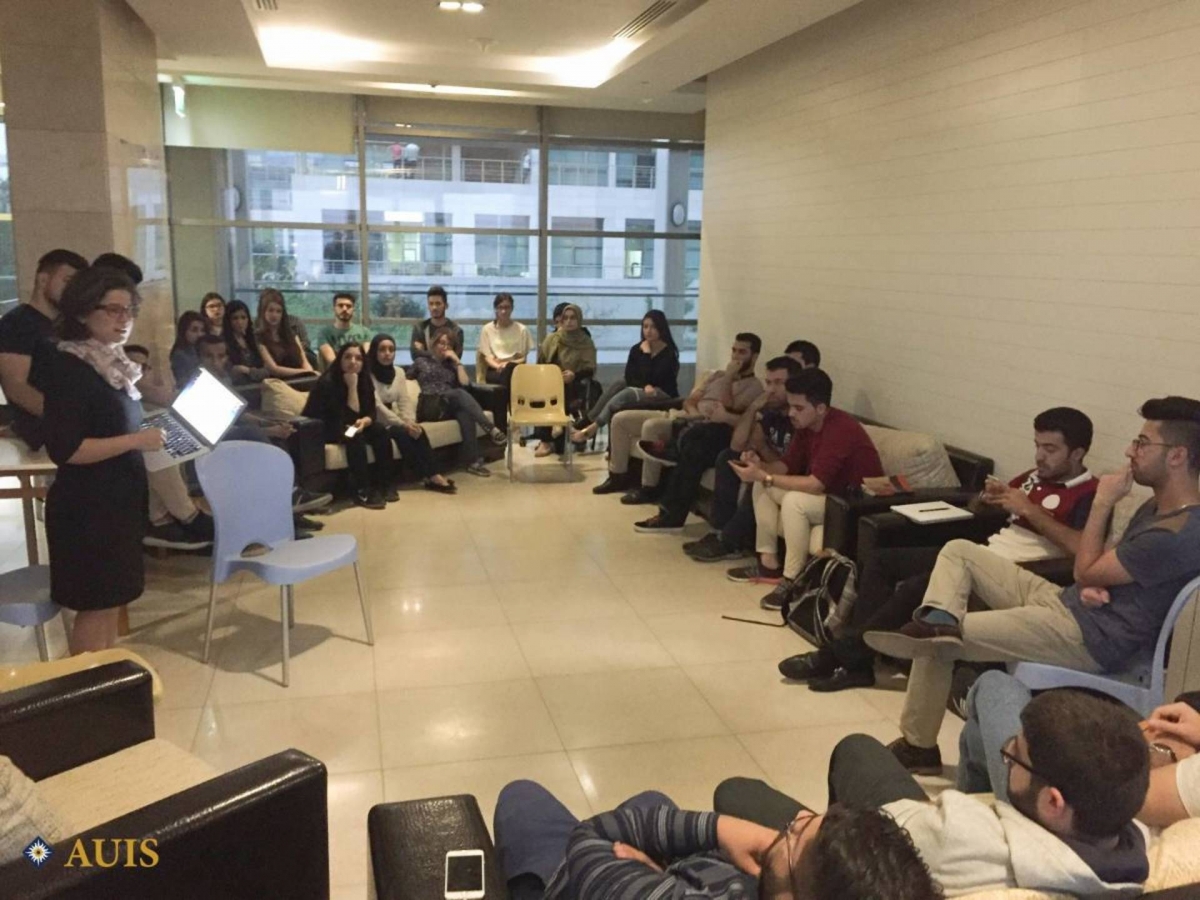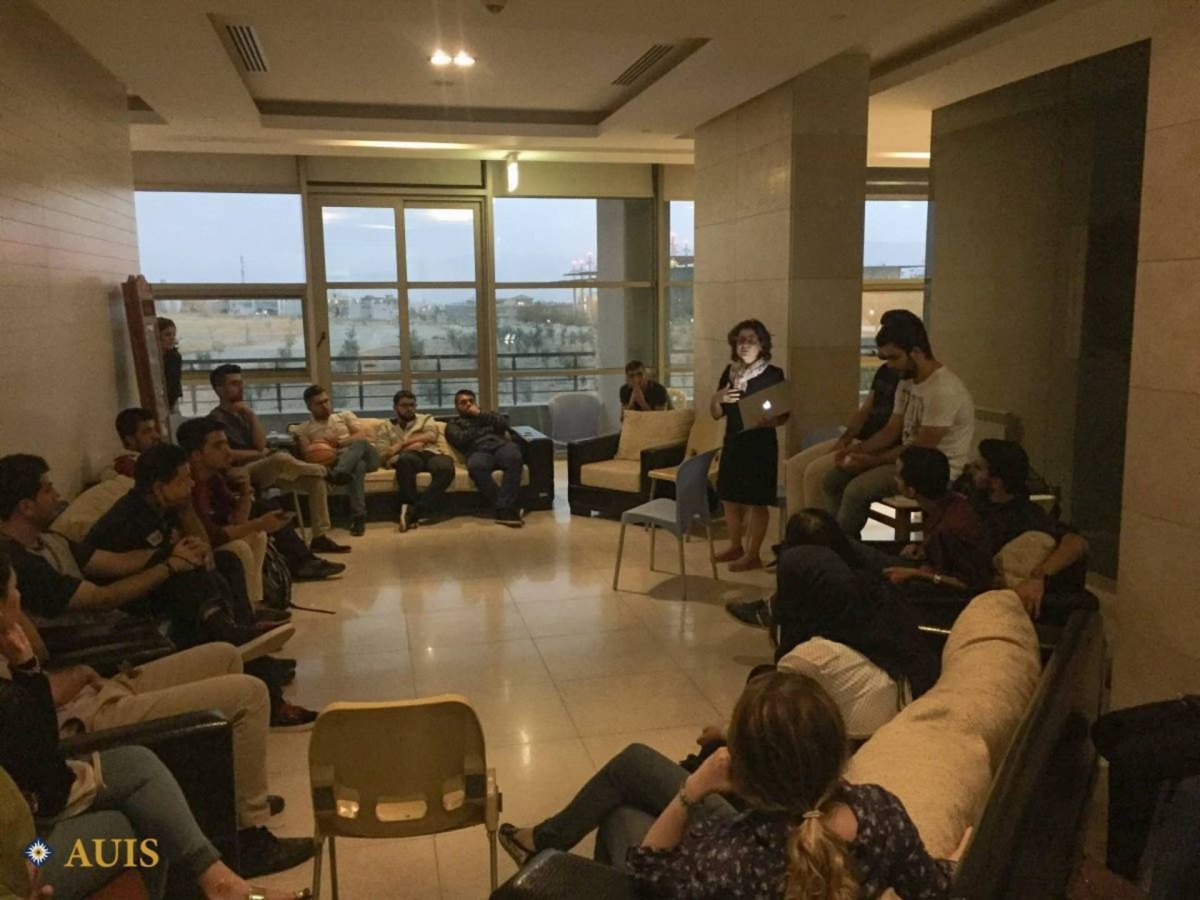
By Chra Hussain, AUIS IT major
On October 18, 2016 Dr. Choman Hardi, Director of Center for Gender and Development Studies at AUIS, facilitated a workshop on sexual harassment. The workshop was was open to both male and female students. Understanding sexual harassment and its consequences was the main focus of the workshop as well as challenging the norms and myths that cause it and highlighting bystander responsibility.
After defining sexual harassment and identifying its different types, the workshop discussed its consequences for victims and communities at large; how it negatively affects the victims' psychology and their performance in work or studies; and how it disconnects victims from their community and threatens social cohesion. Not addressing sexual harassment means it will remain unchallenged and may be considered normal and acceptable.
 Dr. Hardi shared statistics about how common sexual harassment is and went on to challenge the myths that are used to justify it. The most common myths that were addressed included the following: First of all, women, by dressing in certain ways and going to certain places, are “asking for it”. Secondly, when women say “no” they are just playing hard to get. Another myth that was discussed was “men will always be men” and they can’t control themselves, therefore it is the victim’s responsibility, rather than the perpetrator, to protect herself.
Dr. Hardi shared statistics about how common sexual harassment is and went on to challenge the myths that are used to justify it. The most common myths that were addressed included the following: First of all, women, by dressing in certain ways and going to certain places, are “asking for it”. Secondly, when women say “no” they are just playing hard to get. Another myth that was discussed was “men will always be men” and they can’t control themselves, therefore it is the victim’s responsibility, rather than the perpetrator, to protect herself.
Issues related to low level of reporting, despite widespread sexual harassment in the region, were also discussed, especially the threat of shaming and consequent stigmatization. Indeed, shaming has become a global phenomenon especially through the power of technology. If one has sensitive photos of another or has image editing capabilities, they use it to threaten the victims so that the victims refuse to report.
The workshop ended with highlighting the responsibility of bystanders to intervene in developing situations, challenging perpetrators, and cooperating with investigators. It stressed our responsibilities, as individuals, for spreading ideas and practises of equality leading to a safer society.
Raising awareness, especially through education, is indeed an effective first step to confront sexual harassment and abuse. This workshop gave AUIS students the opportunity to be more aware of the meaning, prevalence, reasons, and possible approaches to tackling the phenomenon. Students warmly participated in the discussions and offered their own views about the issues.

